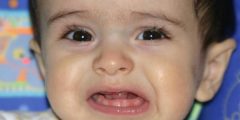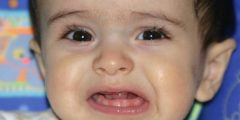The importance of teeth for a child
Although primary teeth remain in the mouth for a certain period and then fall out, they are of special importance to the child’s health and development. Baby teeth help the child chew food and thus obtain healthy nutrition, as missing or decayed teeth make the chewing process more difficult and thus may lead to the child rejecting food. Also, baby teeth give the face its natural shape and develop the child’s ability to speak clearly, and it should be noted. However, decayed baby teeth and those affected by infections may have a negative effect and cause damage to the permanent teeth underneath. In addition, the baby teeth maintain the distance necessary for the growth of the permanent teeth later. When the baby tooth is lost at an earlier time than the normal time, the teeth adjacent to the missing tooth begin to tilt towards the empty place, and thus the distance necessary for the eruption of the permanent teeth (in English: Permanent Teeth) is reduced. This results in many problems such as crowding or impacted teeth, and from here stems the importance of maintaining the health of children’s baby teeth.
Timing of baby teeth eruption
Baby teeth consist of twenty teeth distributed in the mouth, and the timing of their eruption varies from child to child, but they usually begin to erupt at approximately six months of age, as the lower central incisor begins to erupt first, followed by the lower lateral incisor (in English: Lower central incisor). In English: Lower Lateral Incisor), then the upper central and lateral incisors, and the rest of the teeth continue to erupt gradually until they are completed when the child reaches about two and a half to three years of age, and they remain complete in the mouth until approximately 6-7 years of age. Below we point out some facts related to the eruption of baby teeth:
Read also:Symptoms of excess in children- Four baby teeth appear in the mouth approximately every six months.
- Females usually precede males in developing teeth.
- The lower teeth usually erupt before the upper teeth.
- Teeth in the jaw usually appear in pairs, one on the right side and one on the left.
- The primary teeth should be fully formed by approximately two to three years of age.
- The jaw and facial bones begin to grow gradually after four years of the child’s life, and as a result, a space forms between the baby teeth. This is a natural thing that happens to obtain the necessary distance for the permanent teeth to erupt later. In the period between 6-12 years, the child will have a mixture of baby and permanent teeth. .
Teething symptoms in a child
Baby teeth begin to appear at approximately six months of age, as we mentioned above, and this stage is accompanied by the appearance of some symptoms, including the following:
- Upset and crying.
- Change in the child’s eating and sleeping routine.
- Drooling, which may sometimes cause a skin rash.
- Swelling and pain in the gums.
In the context of talking about teething symptoms, it should be noted that some people think that a child’s high body temperature and diarrhea are symptoms of teething, but this is not true in all cases, as the child in this age period may suffer from medical conditions accompanied by fever and diarrhea, such as infections. Viral.
Read also:Causes of chapped lips in children
Ways to calm a child during the teething period
There are many ways to soothe a baby during teething, including:
- Baby gum massage: A wet finger or pad can be used to massage the baby's gums, as this pressure relieves the baby's discomfort.
- Offering cold or solid food to the child: If the child can eat solid food, he can be given a piece of food, such as cucumber or carrot, and the child bites it with his gums. It should be noted the importance of constantly monitoring the child while eating to avoid the risk of choking.
- Drying saliva constantly: Teething stimulates the production of saliva, and saliva may lead to a rash around the mouth, as we mentioned above, so it is recommended to dry the saliva constantly.
- Use pain relievers when needed: Such as acetaminophen and ibuprofen.
Child dental care
Studies have shown that people who suffered from tooth decay in their baby teeth during their childhood are more likely to develop tooth decay in their permanent teeth, so parents should take care of their children’s teeth from the beginning, that is, from the beginning of the eruption of baby teeth, and focus on healthy eating habits, and teeth can be taken care of. milk in the following ways:
- Cleaning the mouth before teeth appear: It is recommended to clean the gums with a clean, moist piece of gauze, by inserting it into the child’s mouth and wiping the gums after every meal.
- Avoid giving the baby milk feeds for long periods: Giving the child milk before bedtime is a contributing factor to the occurrence of tooth decay, as is keeping the breastfeeding in the child’s mouth for long periods without actually drinking the milk, but only for calming down.
- Brushing teeth twice daily: It is recommended to use a toothbrush and toothpaste that contains fluoride (in English: Fluoride Toothpaste) in a small amount equivalent to the size of a grain of rice to clean the child’s teeth from the beginning of their emergence, then increase the amount of toothpaste used to a size equivalent to the size of a pea at the age of three years, and that is twice daily, once a day. Both of them before bed. It is worth paying attention to monitoring the child while he is brushing to note the amount of toothpaste used and warning the child not to swallow it.
- Visit the dentist: It is recommended to visit the dentist to examine the child when the baby teeth begin to appear and not to do so later than the age of one year. The dentist examines the child’s teeth and ensures that they are free of cavities. The doctor also helps in teaching the parents how to brush the child’s teeth, in addition to the possibility of helping them in resolving some problems. Problems such as thumb sucking.
- Interdental cleaning: When parents notice that there are teeth adjacent to each other, it is advised to clean them constantly.









